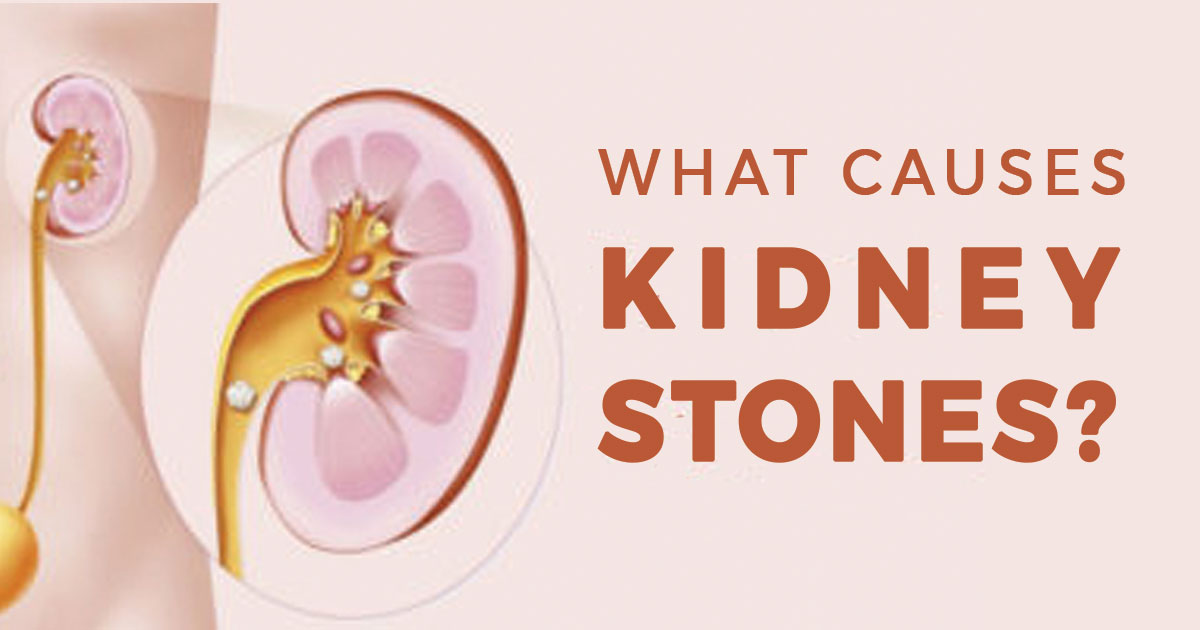What causes kidney stones?

Kidney stones are a common health problem that affects millions of people worldwide. While kidney stones often have no definite, single cause, several factors can increase your risk. In this article, we will explore the causes of kidney stones in detail and help you understand what steps you can take to prevent this painful condition from occurring.
What are Kidney Stones?
Kidney stones are solid masses that form in your kidneys when your urine contains more crystal-forming substances, such as calcium, oxalate, and uric acid, than the fluid in your urine can dilute. At the same time, your urine may lack substances that prevent crystals from forming. As a result, these crystals can grow into larger stones that cause pain and discomfort.
Common Causes of Kidney Stones
Several factors can increase your risk of developing kidney stones, including:
1. Diet
A diet high in salt, sugar, and animal protein can increase your risk of developing kidney stones. These foods can lead to high levels of calcium, oxalate, and uric acid in your urine, which can contribute to the formation of kidney stones.
2. Dehydration
Dehydration is a common cause of kidney stones. When dehydrated, your urine becomes more concentrated, making it easier for crystals to form and grow into larger stones.
3. Genetics
In some cases, genetics can play a role in forming kidney stones. Certain genetic conditions, such as cystinuria, can cause high levels of cystine (an amino acid) in the urine, which can lead to the formation of kidney stones.
4. Medical Conditions
Medical conditions such as Crohn’s disease, hyperparathyroidism, and renal tubular acidosis can increase your risk of developing kidney stones. These conditions can affect the levels of minerals and other substances in your urine, making it easier for crystals to form.
5. Medications
Certain medications can increase your risk of developing kidney stones. These include diuretics, antacids, and calcium-based antacids, which can affect the levels of minerals in your urine and make it easier for crystals to form.
How to Prevent Kidney Stones
Preventing kidney stones involves making certain lifestyle changes, including:
1. Staying Hydrated
Drinking plenty of water can help prevent kidney stones by diluting the substances in your urine that can lead to their formation. Aim to drink at least eight glasses of water daily, or more if you are physically active or live in a hot climate.
2. Eating a Balanced Diet
Eating a balanced diet low in salt, sugar, and animal protein can help prevent kidney stones. Instead, focus on consuming plenty of fruits, vegetables, and whole grains, which can help reduce the levels of minerals in your urine that can lead to the formation of kidney stones.
3. Managing Medical Conditions
If you have a medical condition that increases your risk of developing kidney stones, it is essential to manage it effectively. This may involve taking medications, such as potassium citrate, which can help reduce the risk of kidney stones.
4. Avoiding Certain Medications
If you are at risk of developing kidney stones, it is important to avoid certain medications that can increase your risk. Talk to your doctor about the medications you are taking and whether they could contribute to kidney stone formation.
Conclusion
In conclusion, kidney stones are a common health problem that can cause significant pain and discomfort. While several factors can increase your risk of developing kidney stones, lifestyle changes, such as staying hydrated, eating a balanced diet, and managing medical conditions, can help prevent their formation. By taking these steps.